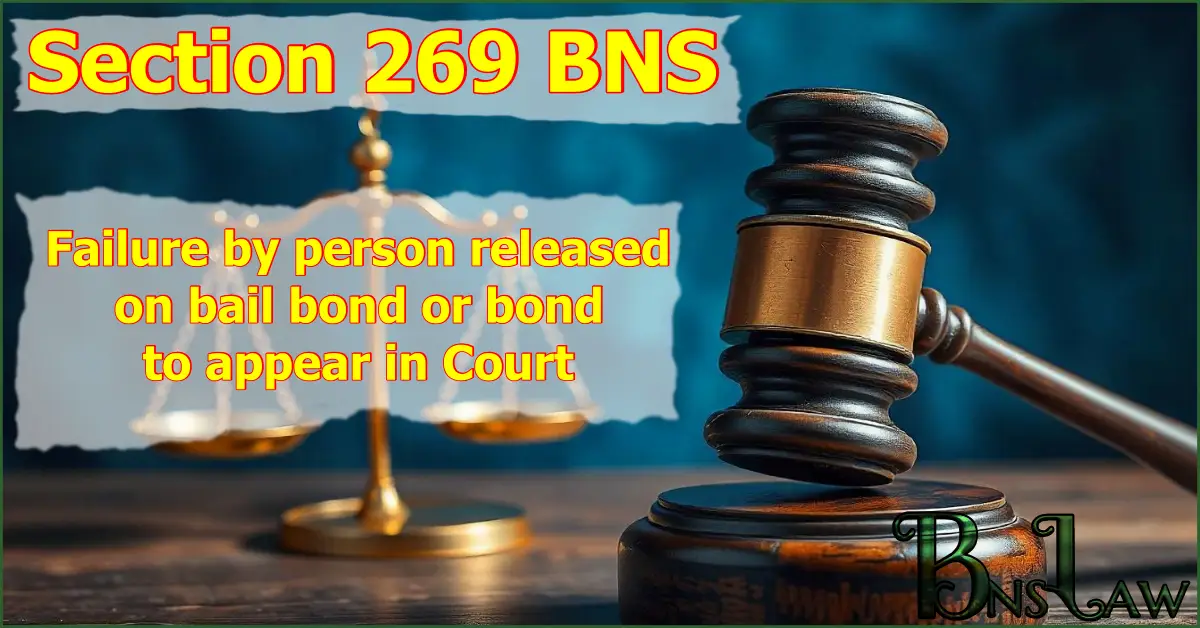Section 269 BNS | BNS 269
Whoever, having been charged with an offence and released on bail bond or on bond, fails without sufficient cause (the burden of proving which shall lie upon him), to appear in Court in accordance with the terms of the bail or bond, shall be punished with imprisonment of either description for a term which may extend to one year, or with fine, or with both.
Explanation— The punishment under this section is:
(a) in addition to the punishment to which the offender would be liable on a conviction for the offence with which he has been charged; and
(b) without prejudice to the power of the Court to order forfeiture of the bond.
READ OTHER SECTIONS OF CHAPTER XIV — OF FALSE EVIDENCE AND OFFENCES AGAINST PUBLIC JUSTICE
FAQs of BNS Section 269
-
269 BNS punishment and fine
Punishment and fine under Section 269 of the BNS: Imprisonment for 1 year, or fine, or both.
-
269 BNS cognizable or not
The offence under Section 269 of the BNS is cognizable.
-
269 BNS bailable or not
The offence under Section 269 of the BNS is non-bailable.
-
269 BNS trial court
Offence specified in Section 269 of the BNS is triable by any Magistrate.
Important Points
- Cognizable Offences: These are offences where a police officer can arrest a person without a warrant.
- Non-Cognizable Offences: These are offences where a police officer cannot arrest a person without a warrant.
- Bailable Offences: These are offences where the accused can get bail from the police station itself. All bailable offences are listed in the First Schedule of the Bharatiya Nagarik Suraksha Sanhita (BNSS).
- Non-Bailable Offences: Offences in which bail is not granted directly from the police station but after hearing the case in the court, the judge decides when bail will be granted. All non-bailable offences are listed in the first schedule of the Bharatiya Nagarik Suraksha Sanhita (BNSS).
- In the above FAQ, “trial court” means the court that has jurisdiction to try the offence.
- In the above FAQ, the expression “Magistrate of the first class” and “Any Magistrate” does not include Executive Magistrates.
Read other Sections of the BNS
Reference Link: New Criminal Laws (BNS), Ministry of Home Affairs







